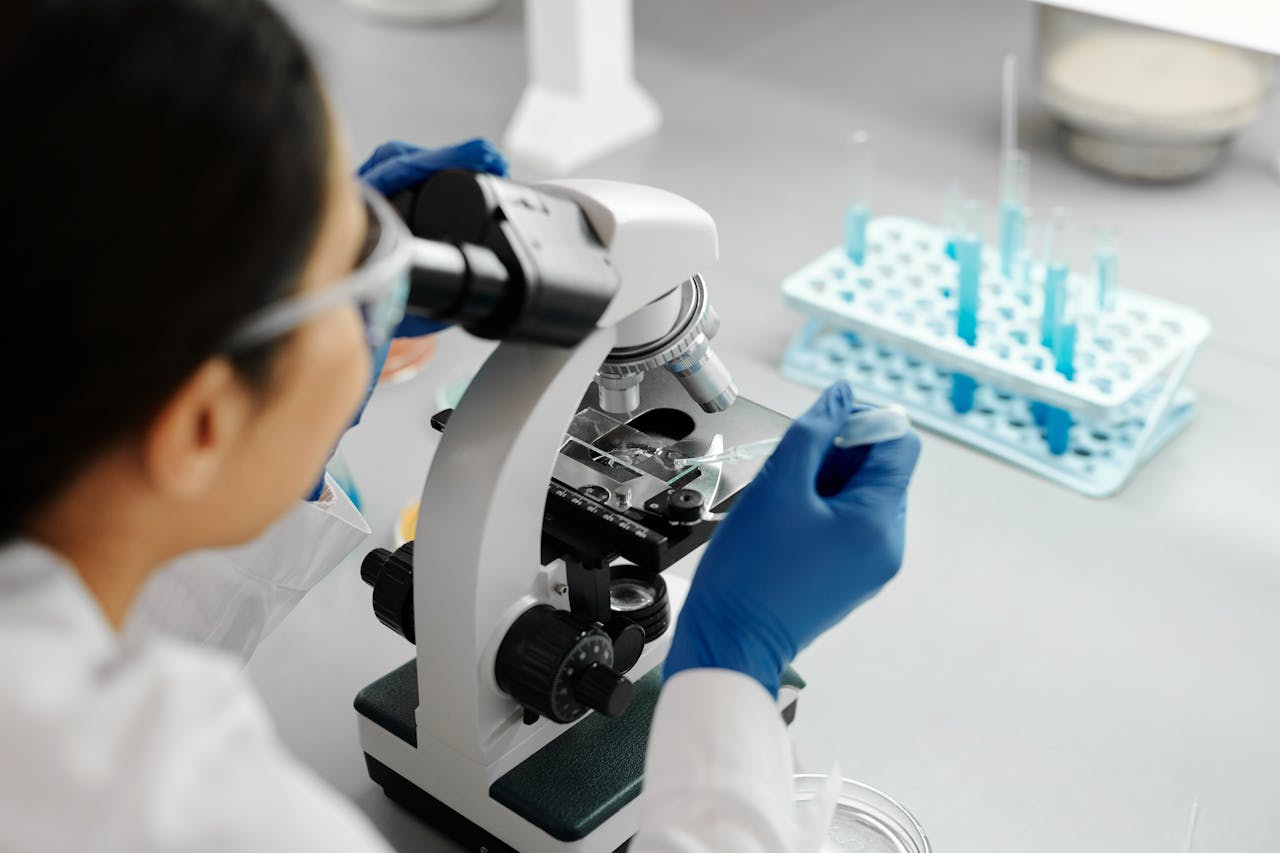Microbiology is a rapidly growing field at the intersection of medicine, biotechnology, and environmental science. Microbiologists play a critical role in understanding and addressing challenges such as infectious diseases, antibiotic resistance, food safety, and climate change.
Whether you’re fascinated by microorganisms or looking to pursue a research-driven career, becoming a microbiologist starts with a strong academic foundation and strategic career planning.
Below is a step-by-step guide on how to become a microbiologist in Malaysia and build a rewarding scientific career in this essential field.

Step 1: Begin with a Foundation in Science
To pursue microbiology at the university level, students must first complete a foundation in science or its equivalent. This pre-university programme typically lasts one year and includes core subjects such as:
- Biology
- Chemistry
- Physics
- Mathematics
The requirements for a foundation in science course in Malaysia vary by institution, but completing this programme is often the most direct pathway to a biomedical-related degree. Students are also introduced to lab work and basic research skills—setting the stage for further education.
Step 2: Earn a Biomedical or Science Degree
Next, students should enrol in a bachelor’s programme related to microbiology or life sciences. The most relevant options include:
- Biomedical science
- Microbiology
- Molecular biology
- Biotechnology
A relevant degree equips students with essential lab skills and theoretical knowledge in microbiology, immunology, cell biology, and pharmacology. It usually takes 3 to 4 years to complete.
Step 3: Gain Laboratory Experience
Throughout your undergraduate studies, it’s important to gain practical lab experience through coursework, internships, or research assistant roles. Employers and graduate schools value candidates who can:
- Perform microbial culturing and staining
- Use microscopes and spectrophotometers
- Conduct DNA extraction and PCR
- Analyse antimicrobial susceptibility
Many universities provide structured placements with hospitals, diagnostic labs, or research centres to ensure students apply what they’ve learned. These hands-on experiences are crucial for developing critical thinking and data interpretation skills.
Step 4: Consider Postgraduate Studies
While a bachelor’s degree may be enough for entry-level roles, most microbiologists go on to pursue postgraduate qualifications such as a master’s or PhD. These programmes offer opportunities for deeper specialisation in fields like:
- Clinical microbiology
- Environmental microbiology
- Virology or mycology
- Microbial genomics
Students interested in clinical diagnostics may also pursue MBBS training or a medical degree to eventually work as infectious disease doctors or lab consultants.
For research careers, a PhD opens doors to academia, government institutions, and international research projects.
Step 5: Choose a Career Path
Microbiologists have a wide range of career options depending on their interests and qualifications. Here are common pathways:
- Clinical Microbiologist: A clinical microbiologist works in hospitals or pathology labs, identifying infectious agents.
- Industrial Microbiologist. Industrial microbiologists ensure product safety in food and beverage companies or biotech firms.
- Research Scientist: Those in the research field conduct experiments to study microbial genetics, bioengineering, or new treatments.
- Public Health Officer: Public health officers monitor, control outbreaks, and promote hygiene practices.
- Academician or Lecturer: And if you have a passion for education, you can teach microbiology at universities while conducting research.
Each path may require specific certifications or memberships, such as with the Malaysian Society for Microbiology (MSM).
Step 6: Stay Updated and Network
Microbiology is constantly evolving, especially with advancements in genomic technology and synthetic biology. To stay relevant:
- Subscribe to scientific journals
- Attend workshops and conferences
- Join professional societies
- Take short courses or certifications
Final Thoughts
Becoming a microbiologist requires dedication to science, attention to detail, and a passion for solving real-world problems. Whether you’re aiming to become a lab researcher, clinician, or educator, the journey begins with a strong foundation in science and grows through continuous learning.
Start by studying in the right medical school and gain experience through labs and internships. From there, you can specialise and carve your path in this exciting field that sits at the forefront of innovation and public health.
At RUMC, we offer an Irish medical degree that is internationally recognised, allowing graduates to practice globally. Explore our programmes & scholarships to learn more.
FAQs About Becoming a Microbiologist
1. What qualifications do I need to become a microbiologist?
You’ll need at least a bachelor’s degree in microbiology, biomedical science, or a related field. Postgraduate studies may be required for research or clinical roles.
2. Is microbiology a good career in Malaysia?
Yes. With growing interest in health, biotechnology, and environmental science, microbiologists are in demand across various sectors in Malaysia.
3. Can I become a microbiologist with a medical degree?
Yes. If you possess a medical undergraduate qualification, you can pursue clinical microbiology or infectious diseases, blending medical and microbial expertise.
4. How long does it take to become a microbiologist?
It takes about 3–4 years to complete a bachelor’s degree, plus additional years for master’s or PhD programmes, depending on your chosen career path.






